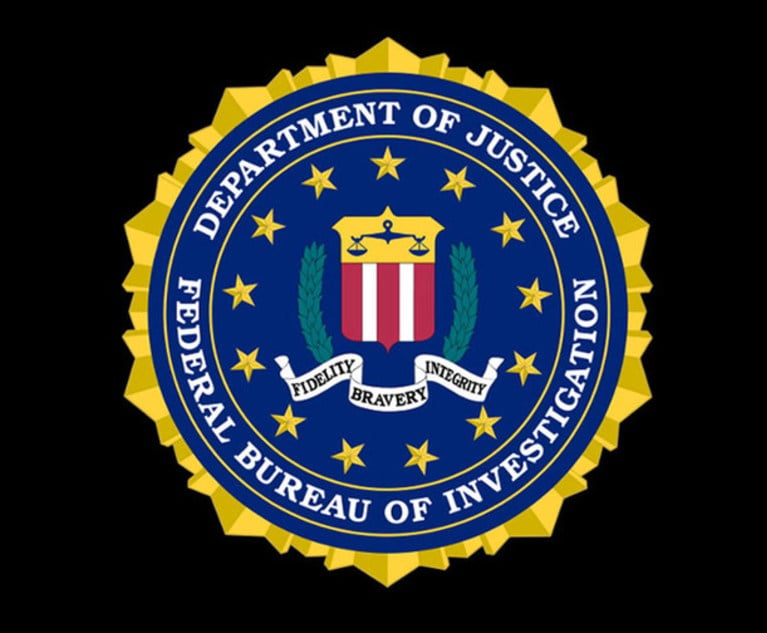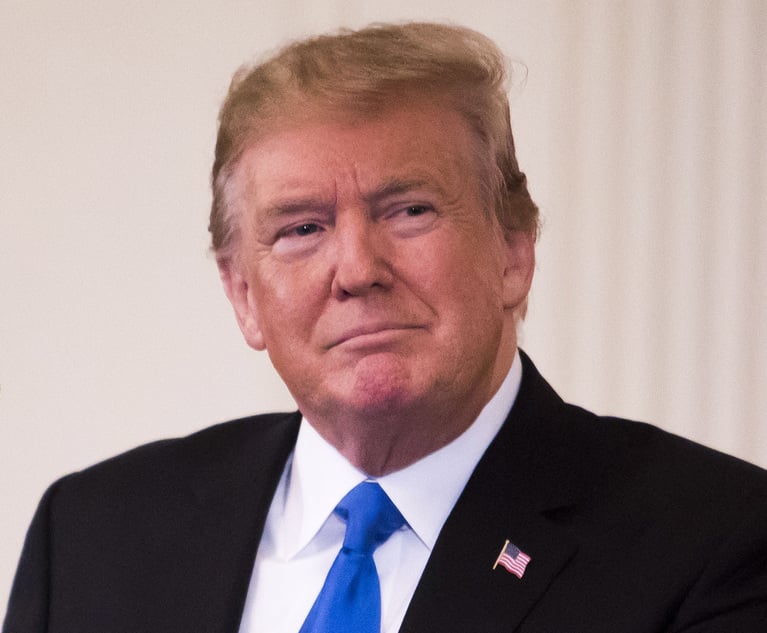
We Need a New Voting Rights Law Now
This current situation, on top of the post-Shelby County laws, calls for urgent federal action.
February 21, 2021 at 10:00 AM
2 minute read
For a number of generations, the innovative pre-clearance mechanism of the 1965 Voting Rights Act protected millions of Americans from proposed state laws aimed at suppressing their ability to vote. States (mostly in the South) with a history of discrimination in voting rights had to submit changes in their election laws for prior approval by the U.S. Justice Department and many such changes were blocked. Then, in the 2013 Shelby County case the U.S. Supreme Court declared that process unconstitutional, concluding that the historical basis for it no longer existed.
We now have a new history. Immediately after Shelby County many states, not all in the South, passed and implemented laws either intended to, or having the effect of, denying the vote to qualified Americans. This movement has only accelerated since the 2020 election, after an all-time record voter turnout. In a February 2021 report the Brennan Center for Justice concluded that there is now a surge of new proposed state laws seeking further to restrict, either intentionally or with that obvious effect, the ability of qualified Americans to vote.
The report states "In a backlash to historic voter turnout in the 2020 general election … legislators have introduced well over four times the number of bills to restrict voting access as compared to roughly this time last year."
This content has been archived. It is available through our partners, LexisNexis® and Bloomberg Law.
To view this content, please continue to their sites.
Not a Lexis Subscriber?
Subscribe Now
Not a Bloomberg Law Subscriber?
Subscribe Now
NOT FOR REPRINT
© 2025 ALM Global, LLC, All Rights Reserved. Request academic re-use from www.copyright.com. All other uses, submit a request to [email protected]. For more information visit Asset & Logo Licensing.
You Might Like
View All
3rd Circuit Strikes Down NLRB’s Monetary Remedies for Fired Starbucks Workers


As Trafficking, Hate Crimes Rise in NJ, State's Federal Delegation Must Weigh in On New UN Proposal
4 minute read
Trending Stories
- 1'Pull Back the Curtain': Ex-NFL Players Seek Discovery in Lawsuit Over League's Disability Plan
- 2Tensions Run High at Final Hearing Before Manhattan Congestion Pricing Takes Effect
- 3Improper Removal to Fed. Court Leads to $100K Bill for Blue Cross Blue Shield
- 4Michael Halpern, Beloved Key West Attorney, Dies at 72
- 5Burr & Forman, Smith Gambrell & Russell Promote More to Partner This Year
Who Got The Work
Michael G. Bongiorno, Andrew Scott Dulberg and Elizabeth E. Driscoll from Wilmer Cutler Pickering Hale and Dorr have stepped in to represent Symbotic Inc., an A.I.-enabled technology platform that focuses on increasing supply chain efficiency, and other defendants in a pending shareholder derivative lawsuit. The case, filed Oct. 2 in Massachusetts District Court by the Brown Law Firm on behalf of Stephen Austen, accuses certain officers and directors of misleading investors in regard to Symbotic's potential for margin growth by failing to disclose that the company was not equipped to timely deploy its systems or manage expenses through project delays. The case, assigned to U.S. District Judge Nathaniel M. Gorton, is 1:24-cv-12522, Austen v. Cohen et al.
Who Got The Work
Edmund Polubinski and Marie Killmond of Davis Polk & Wardwell have entered appearances for data platform software development company MongoDB and other defendants in a pending shareholder derivative lawsuit. The action, filed Oct. 7 in New York Southern District Court by the Brown Law Firm, accuses the company's directors and/or officers of falsely expressing confidence in the company’s restructuring of its sales incentive plan and downplaying the severity of decreases in its upfront commitments. The case is 1:24-cv-07594, Roy v. Ittycheria et al.
Who Got The Work
Amy O. Bruchs and Kurt F. Ellison of Michael Best & Friedrich have entered appearances for Epic Systems Corp. in a pending employment discrimination lawsuit. The suit was filed Sept. 7 in Wisconsin Western District Court by Levine Eisberner LLC and Siri & Glimstad on behalf of a project manager who claims that he was wrongfully terminated after applying for a religious exemption to the defendant's COVID-19 vaccine mandate. The case, assigned to U.S. Magistrate Judge Anita Marie Boor, is 3:24-cv-00630, Secker, Nathan v. Epic Systems Corporation.
Who Got The Work
David X. Sullivan, Thomas J. Finn and Gregory A. Hall from McCarter & English have entered appearances for Sunrun Installation Services in a pending civil rights lawsuit. The complaint was filed Sept. 4 in Connecticut District Court by attorney Robert M. Berke on behalf of former employee George Edward Steins, who was arrested and charged with employing an unregistered home improvement salesperson. The complaint alleges that had Sunrun informed the Connecticut Department of Consumer Protection that the plaintiff's employment had ended in 2017 and that he no longer held Sunrun's home improvement contractor license, he would not have been hit with charges, which were dismissed in May 2024. The case, assigned to U.S. District Judge Jeffrey A. Meyer, is 3:24-cv-01423, Steins v. Sunrun, Inc. et al.
Who Got The Work
Greenberg Traurig shareholder Joshua L. Raskin has entered an appearance for boohoo.com UK Ltd. in a pending patent infringement lawsuit. The suit, filed Sept. 3 in Texas Eastern District Court by Rozier Hardt McDonough on behalf of Alto Dynamics, asserts five patents related to an online shopping platform. The case, assigned to U.S. District Judge Rodney Gilstrap, is 2:24-cv-00719, Alto Dynamics, LLC v. boohoo.com UK Limited.
Featured Firms
Law Offices of Gary Martin Hays & Associates, P.C.
(470) 294-1674
Law Offices of Mark E. Salomone
(857) 444-6468
Smith & Hassler
(713) 739-1250






